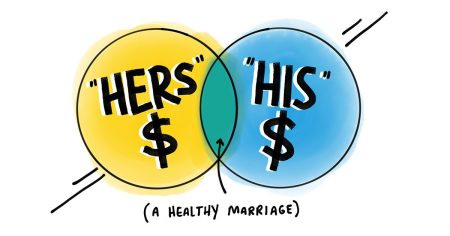Credit Sesame’s personal finance news roundup October 26, 2024. Stories, news, politics and events impacting personal finance during the past week.
Credit conditions continue to worsen in September 2024
The latest TransUnion Credit Industry Snapshot showed consumers continued to take on more debt in September, even as they increasingly struggled to make payments. During the month, balances owed rose for credit cards, mortgages, and unsecured personal loans. Meanwhile, delinquency rates rose for all those products. Delinquency rates measure the percentage of borrowers whose payments are overdue. Subprime customers showed an especially steep jump in late credit card payments in September. The percentage of that market segment is at least 90 days late, with late payments rising from 19.07% to 22.38% during the month. See details at TransUnion.com.
IRS warns about scams linked to hurricane relief
Hurricanes Helene and Milton have left more than physical damage in their wake. The IRS has warned consumers that scams disguised as fundraisers for fake hurricane relief charities are prevalent. These scams aim to get sensitive personal and financial information from people, such as Social Security, credit card, and bank account numbers. The IRS advises people to check out any supposed charity before giving money or information. You can do this using an IRS search tool that shows an organization’s tax-exempt status and its eligibility to accept tax-deductible contributions. See details at WRAL.com.
Oklahoma bank becomes second to fail in 2024
The FDIC announced that the Office of the Comptroller of the Currency, a bank regulator, had shut down the First National Bank of Lindsay. The FDIC arranged for the First Bank & Trust Co. of Duncan, OK, to take over the failed bank’s deposits. The First National Bank of Lindsay was a relatively small bank with under $100 million in customer deposits. An alleged fraud was blamed for the failure. It is the second bank to fail in 2024 and the first since April 2024. See details at FDIC.gov.
New rules on handling consumer financial data
The Consumer Financial Protection Bureau (CFPB) has rolled out new rules about how banks and other financial companies must handle consumer data. The rules allow consumers to move their financial data from one institution to another. This should make changing banks and other providers easier. The proposal also makes it easier for consumers to pay vendors directly from their bank accounts rather than relying on third-party payment services. Another provision dictates that financial companies should use data only to provide services the customer has signed up for and not for marketing unrelated products. Because of the complexity, the new rules will be rolled out slowly, beginning in April of 2026. See details at ConsumerFinance.gov.
Credit card fraud continues to evolve
Visa’s Fall 2024 biannual report on scam threats highlights the prevalence and variety of credit card fraud. One of the threats the report highlights is a revival in the physical theft of credit cards. Today’s thieves try to turn a stolen card into cash as quickly as possible by using it to buy gift cards before the card’s owner has noticed the theft. Another common scam is impersonating government employees to lure victims into making cash payments. The report notes that from 2022 to 2023, there was a 90% increase in losses from cash payments due to this approach. Also, scammers get around multi-factor authentication by infecting user devices with malware to intercept messages and provide temporary authentication codes. Visa reports investing $11 billion in secure technology and infrastructure over the past five years. See report at Visa.com.
Leading economic indicators decline
The Conference Board announced that its Leading Economic Index (LEI) for the US declined by 0.5% in September 2024. The LEI signals potential turning points in the economic cycle. September’s drop in the LEI follows a 0.3% decline in August. Over the past six months, the LEI has fallen bf 2.6%. That marks an accelerating decline compared to the 2.2% decline over the previous six months. Weakness in factory orders was cited as a leading factor in the recent decline. See details at Conference-Board.org.
Home sales fall as home prices rise
Home sales fell by 1% in September 2024 and 3.5% over the past twelve months. Typically, falling sales activity is accompanied by falling prices. However, home prices have risen by 3% over the past year. Home prices rose in all four major regions of the US, while sales volume fell in all regions except the West. The pairing of increasing prices and falling volume has been attributed to a scarcity of homes for sale. That dynamic may change, as unsold inventory has risen from 3.4 months’ supply to 4.3 months over the past year. See home sales report at NAR.Realtor.
Mortgage rates continue to climb in October 2024
30-year mortgage rates rose by 0.10% last week to reach 6.54%. That marked the fourth consecutive weekly increase for 30-year rates. Those rates are now 0.46% higher than when the rising streak started. Even so, 30-year rates are still 0.07% lower than when the year began. See rate details at FreddieMac.com.
Weekly news headlines from Credit Sesame
Read the full article here










